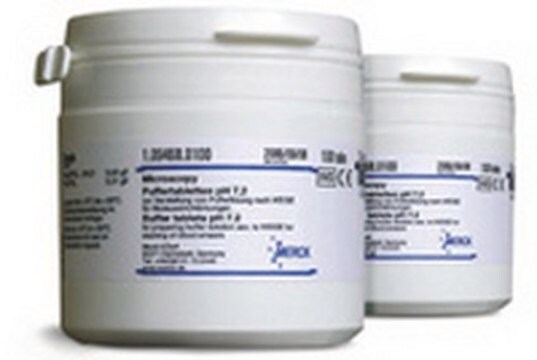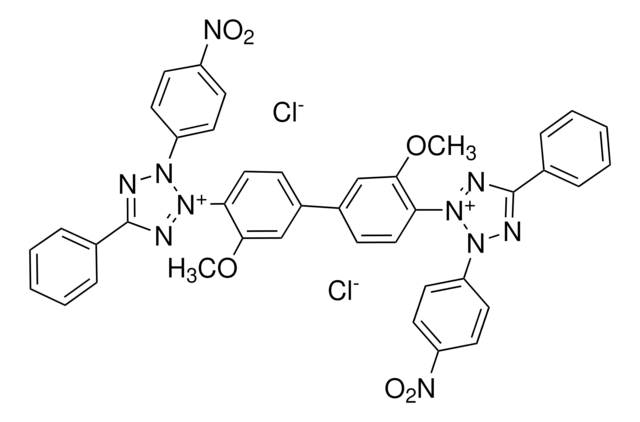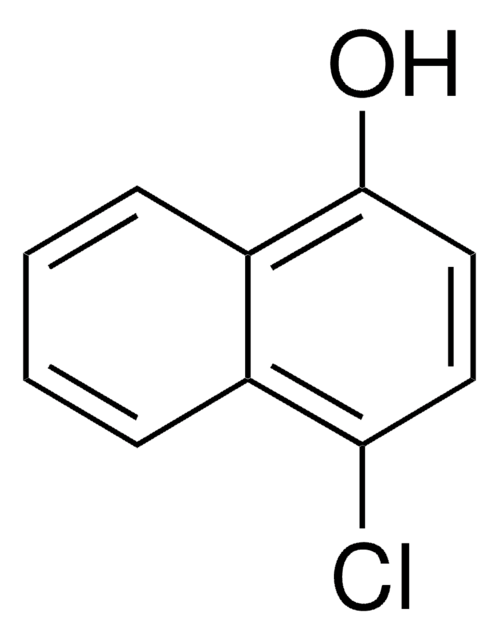D9015
3,3′-Diaminobenzidine tetrahydrochloride hydrate
≥96% purity (TLC), powder
About This Item
Recommended Products
product name
3,3′-Diaminobenzidine tetrahydrochloride hydrate, ISOPAC®
Quality Level
Assay
≥96% (TLC)
form
powder
color
off-white to faint red, to beige
mp
280 °C
solubility
water: 50 mg/mL, clear to slightly hazy
application(s)
diagnostic assay manufacturing
hematology
histology
storage temp.
room temp
SMILES string
O.Cl.Cl.Cl.Cl.Nc1ccc(cc1N)-c2ccc(N)c(N)c2
InChI
1S/C12H14N4.4ClH.H2O/c13-9-3-1-7(5-11(9)15)8-2-4-10(14)12(16)6-8;;;;;/h1-6H,13-16H2;4*1H;1H2
InChI key
DXWSCXIZIHILNP-UHFFFAOYSA-N
Looking for similar products? Visit Product Comparison Guide
Application
Biochem/physiol Actions
Packaging
Caution
Reconstitution
Legal Information
ISOPAC of
Signal Word
Danger
Hazard Statements
Precautionary Statements
Hazard Classifications
Acute Tox. 4 Oral - Carc. 1B - Eye Irrit. 2 - Muta. 2
Storage Class Code
6.1C - Combustible acute toxic Cat.3 / toxic compounds or compounds which causing chronic effects
WGK
WGK 3
Flash Point(F)
Not applicable
Flash Point(C)
Not applicable
Personal Protective Equipment
Choose from one of the most recent versions:
Already Own This Product?
Find documentation for the products that you have recently purchased in the Document Library.
Customers Also Viewed
Articles
Nitroblue Tetrazolium (NBT) is used with the alkaline phosphatase substrate 5-Bromo- 4-Chloro-3-Indolyl Phosphate (BCIP) in western blotting and immunohistological staining procedures. These substrate systems produce an insoluble NBT diformazan end product that is blue to purple in color and can be observed visually.
Our team of scientists has experience in all areas of research including Life Science, Material Science, Chemical Synthesis, Chromatography, Analytical and many others.
Contact Technical Service










